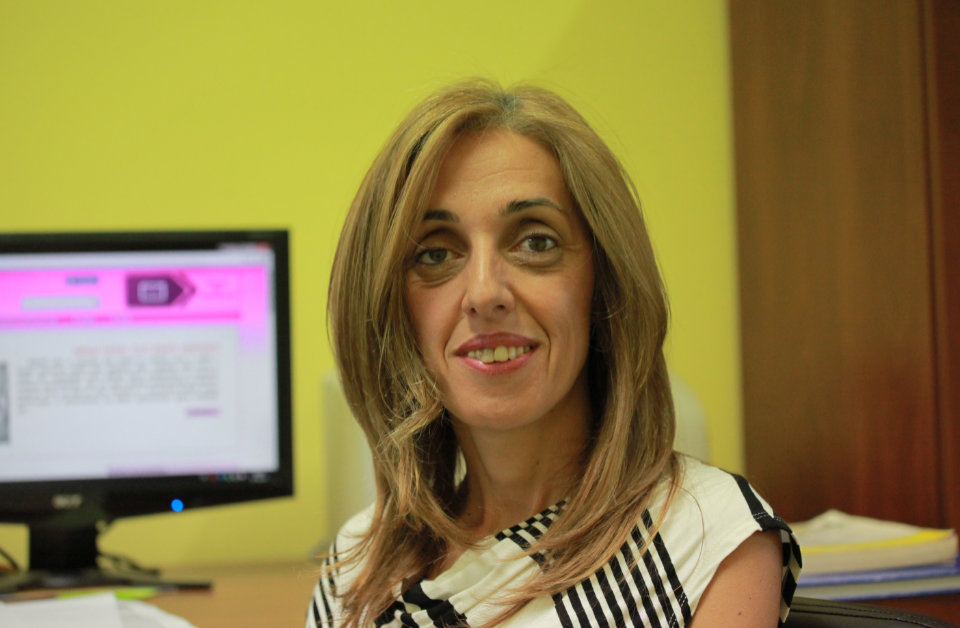Take five: “In times of pandemic, women with disabilities remain invisible”
Date:

Svjetlana Timotic is the founder of NGO “…iz kruga Vojvodina” (Out of Circle-Vojvodina) from Serbia, dedicated to eliminating violence against women with disabilities and ensuring accessible services for women with disabilities in situations of violence. The NGO is an implementing partner of the EU-UN Women regional programme on ending violence against women in the Western Balkans and Turkey, “Implementing Norms, Changing Minds”. She spoke to UN Women about the impact of COVID-19 on women with disabilities and how this pandemic reinforced the deeply-rooted marginalization of women with disabilities at all levels.
In your opinion, what has been the influence of the coronavirus pandemic on women with disabilities?
While everyone fears the coronavirus infection, women with disabilities do not only fear the health-related risks, but also the risks that come with living in a discriminatory society. Healthcare is already largely inaccessible to women with disabilities, a reality that has intensified in the circumstances of the pandemic.
Women with disabilities, systematically denied freedom of movement, are now faced with the fact that all those things they were told were impossible to provide to them are now available in alternative forms to serve the general population in quarantine (online jobs, online schools, home delivery, virtual cultural programmes), emphasizing to them their marginalised position. There are also disruptions to communication; for example, persons with hearing impairments cannot read lips in an environment where everyone is wearing masks. See-through masks are available only on individual initiatives. These masks are known as masks for persons with hearing impairments, even though we should all wear them as universal-design masks.
What particular difficulties are encountered by women with disabilities during the pandemic and the state of emergency?
Women with disabilities agree that all the measures taken since the pandemic have been directed at elderly people, while they have remained invisible. Due to lack of support, some women testify to being overburdened with work and family care. As a result, they put their needs last, which will certainly affect their health.
Women with disabilities living in violence are in a particularly risky position, as they are now continually exposed to violent partners or family members. Some women report being more exposed to digital violence, to the point that, even though social networks are the only means to contact their loved ones, they remove their profiles. No one is even talking about women in residential institutions, who are written off once again.
What needs do women with disabilities have related to information, medical, psychological and legal support during this period?
Since the state of emergency, the operating hours of majority of services have changed, such as the centres for social welfare, courts, and medical institutions, presenting an additional obstacle to accessing information. Women with disabilities most often want to know how to get permits for the movement of their personal assistants and informal caregivers during curfew. Also, women often ask us about their rights when it comes to the enforcement of court decisions regulating custody arrangements, especially during weekend curfews.
What has been the direct response of your organization to the current crisis to meet the needs of women with disabilities?
When the state of emergency began, most of our women beneficiaries said that they organized themselves and had the support of parents, friends or neighbours. The new situation has brought up anxiety, fear for the future, as well as fear of escalating violence, which is why the psychological support we provide is very important for them. We use our Disability Portal to publish up-to-date information on the impacts of the pandemic on people with disabilities, as well as updated contact lists of organizations providing support. We have initiated a section titled Quarantine Stories, which we use to publish personal experiences of women with disabilities. It is important that there is a virtual space showing diverse experiences, because the pandemic does not affect everyone equally.
What would be your message to women with disabilities in these difficult times?
This is a time when the entire society can learn from the experiences of women with disabilities, because most of them regularly face the challenges brought by this emergency. The impact of the pandemic is a clear illustration of the social model of disability: we are not limited by disability, but by the society not respecting diversity as a main human characteristic. The pandemic has served as a litmus test, clearly and undoubtedly showing the deeply-rooted marginalization. The state of emergency will end, but will women with disabilities remain in isolation, as they did prior to COVID-19? It is the responsibility of us all not let this happen.